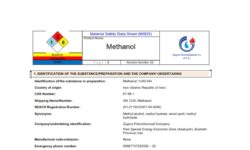Understanding Dog MRI Cost: What to Know Before Scheduling the Procedure
As a pet owner, ensuring your dog receives the best care is a top priority, especially when health issues arise. Advanced diagnostic tools like MRI (Magnetic Resonance Imaging) play a crucial role in identifying underlying medical conditions. However, one common concern among pet parents is the dog MRI cost. This blog will explain what contributes to the cost of a dog MRI, why it’s a vital diagnostic tool, and how you can manage the expense.
What is a Dog MRI and When is it Needed?
An MRI is a sophisticated imaging technology that uses magnetic fields and radio waves to create detailed images of soft tissues, organs, and the nervous system. For dogs, an MRI is commonly recommended to diagnose:
- Neurological conditions, such as seizures or spinal injuries
- Joint problems, including ligament tears
- Tumors or abnormal growths
- Unexplained pain or mobility issues
The precision of MRI makes it indispensable for identifying complex conditions that might be missed by traditional X-rays or ultrasounds.
How Much Does a Dog MRI Cost?
The dog MRI cost can range from $1,000 to $4,000, depending on various factors. Here are some elements that influence the price:
1. Geographic Location
Veterinary costs vary by location. Clinics in urban or high-cost areas generally charge more than those in rural regions due to higher operational expenses.
2. Type of Facility
Specialty veterinary hospitals equipped with state-of-the-art MRI machines may charge a premium compared to general veterinary clinics.
3. Anesthesia Requirements
Unlike human MRIs, dogs must be under general anesthesia to ensure they remain completely still during the procedure. The cost of anesthesia includes both the medication and the monitoring provided by trained veterinary technicians.
4. Complexity of the Procedure
If multiple areas of the body need imaging or if a contrast dye is required for clearer images, the overall cost will increase.
5. Veterinarian Expertise
Experienced veterinary radiologists or neurologists interpret the MRI results, and their expertise often comes at a higher cost.
Why is a Dog MRI Worth the Investment?
The high dog MRI cost may seem daunting, but its benefits often outweigh the expense. Here’s why:
- Accurate Diagnosis: An MRI provides highly detailed images that allow vets to pinpoint the exact cause of a medical issue.
- Targeted Treatment Plans: With precise information, your vet can recommend the most effective treatments or surgical options.
- Minimized Guesswork: By eliminating the need for multiple less-accurate diagnostic tests, an MRI can save time and money in the long run.
Tips for Managing Dog MRI Costs
1. Check Your Pet Insurance
Many pet insurance plans cover diagnostic procedures like MRIs if they are deemed medically necessary. Review your policy to see if the dog MRI cost is partially or fully reimbursable.
2. Ask About Payment Plans
Some veterinary clinics offer flexible payment options to spread out the cost over time. Speak with your vet’s office about financing opportunities.
3. Compare Prices
Prices for MRIs can vary significantly between clinics. It may be worth obtaining quotes from multiple facilities to find the most affordable option.
4. Seek Non-Profit Clinics
In some areas, non-profit organizations or veterinary schools may provide MRIs at a reduced cost for pet owners with financial constraints.
What to Expect During a Dog MRI
The MRI process is straightforward, but it does require preparation:
- Pre-Procedure Consultation: Your vet will assess your dog’s health and discuss why the MRI is necessary.
- Fasting: Your dog may need to fast for several hours before the procedure to prepare for anesthesia.
- Anesthesia Administration: A veterinary anesthesiologist will sedate your dog, ensuring they remain still during the imaging process.
- MRI Scanning: The scan itself can take 30 minutes to 2 hours, depending on the complexity of the case.
- Results Interpretation: A veterinary specialist will analyze the images and provide a detailed report to your vet.
While the dog MRI cost may seem significant, the value it provides in terms of accurate diagnosis and effective treatment is unmatched. Investing in advanced diagnostics ensures your dog receives the care they deserve, improving their quality of life and long-term health.
By exploring options like pet insurance, payment plans, and affordable clinics, you can make the cost more manageable. Remember, your dog’s health and happiness are worth every effort, and an MRI could be the key to understanding and addressing their medical needs effectively.



